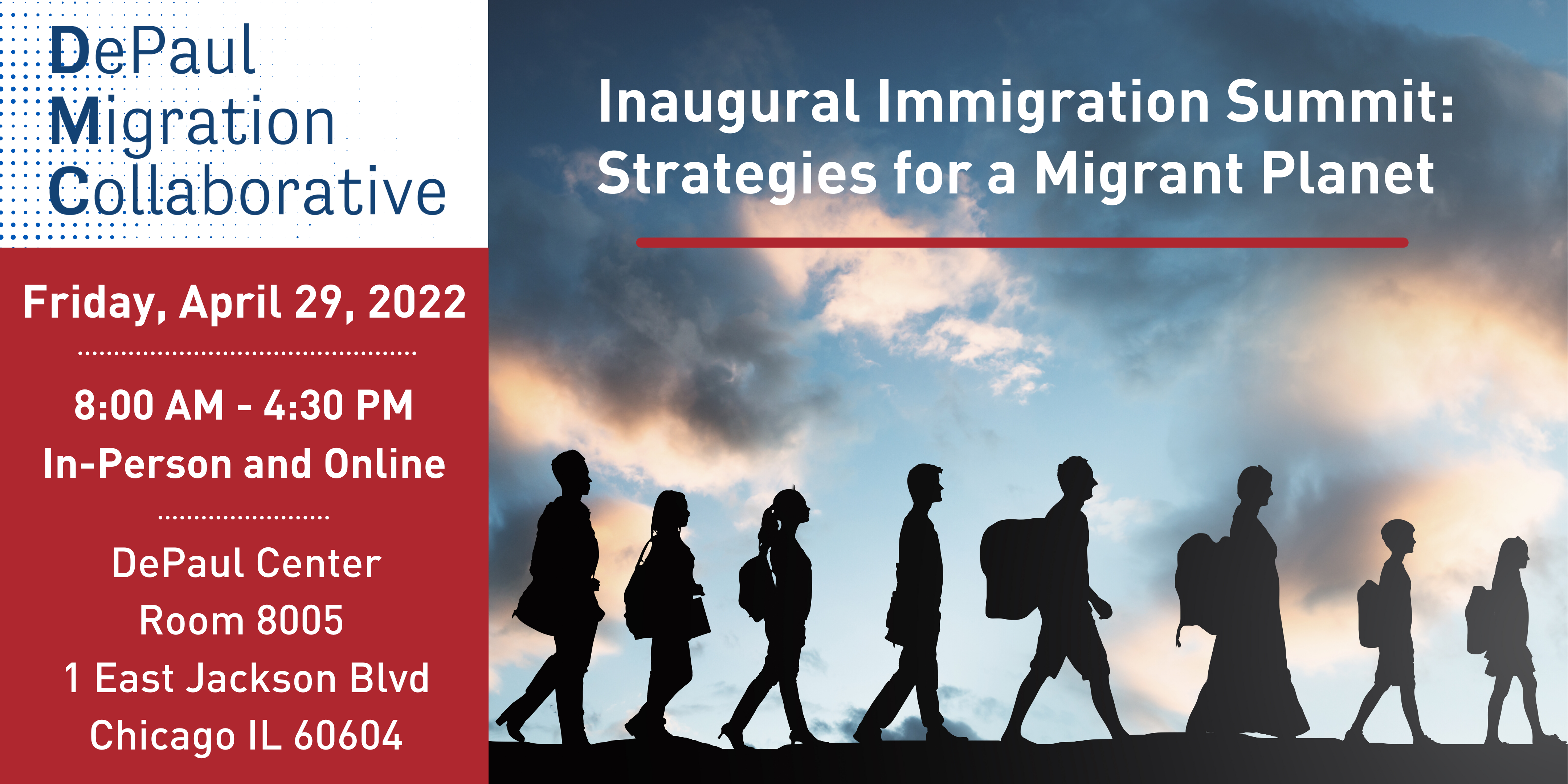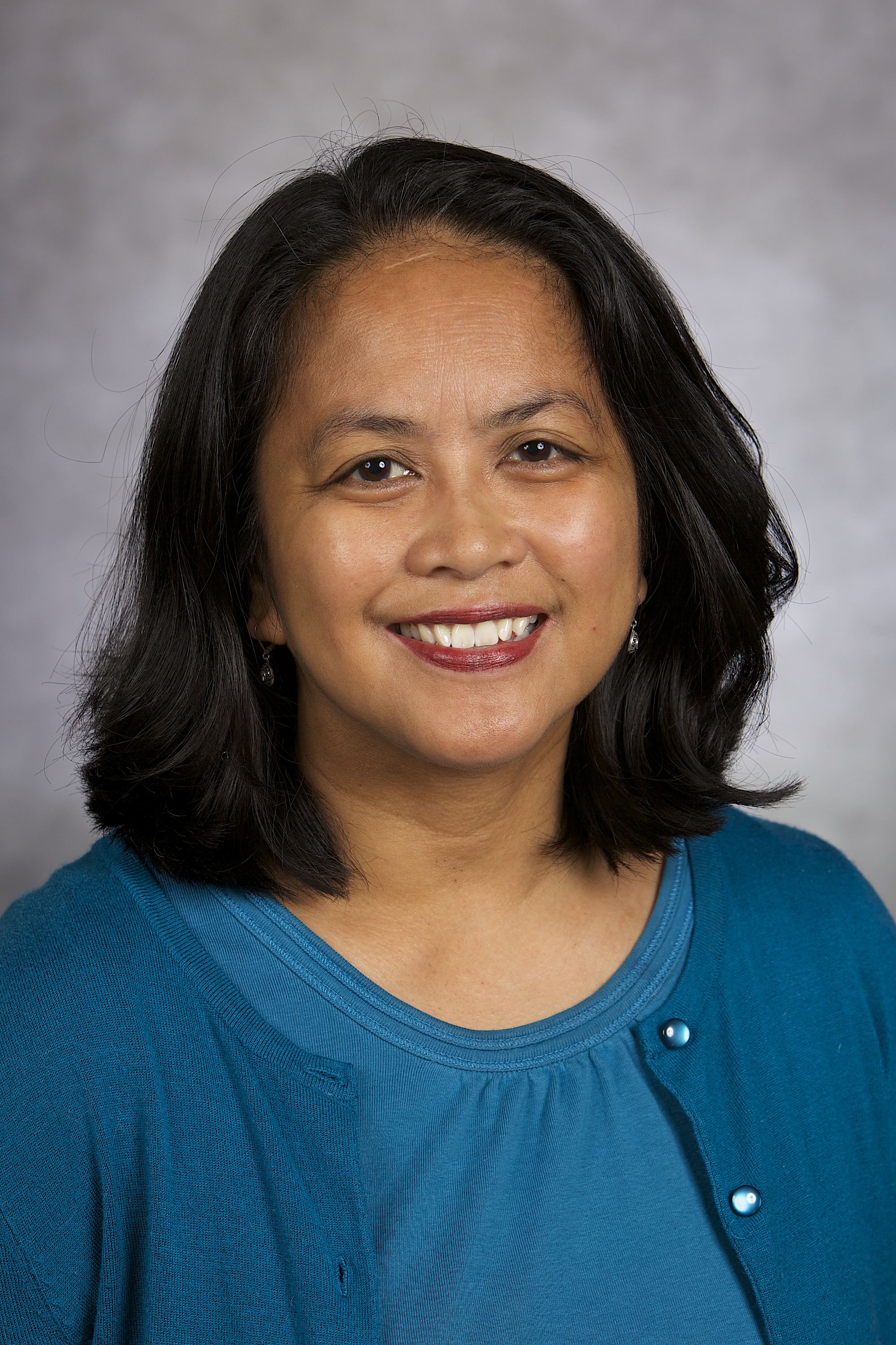 (Image courtesy of Lori Wolan)
(Image courtesy of Lori Wolan)
In the midst of more than four million Ukrainians leaving their home country due to the invasion by Russia, immigration and migration policy have reached a critical crossroads, says a pair of scholars. The experts will speak at DePaul University's Migration Collaborative Immigration Summit on April 29.
Maria Ferrera, an associate professor of social work in the College of Liberal Arts and Social Sciences and co-director of DePaul's Center for Community Health Equity, will speak at the summit on the health and mental health of migrants. Hiroshi Motomura, the Susan Westerberg Prager Distinguished Professor of Law and faculty co-director of the Center for Immigration Law and Policy at the UCLA School of Law, will discuss immigration law and the need to address political and cultural narratives that are often overlooked.
The daylong summit will bring together scholars, advocates, students and practitioners in the Midwest and beyond to share research and insights on significant developments in migration and human rights. Expert panels will address innovations and strategies in immigrant defense, refugee resettlement, mental health, climate migration and detention, among other topics. The summit will be presented online and in person from 8 a.m. – 4:30 p.m. on April 29. More information is available on the summit's website.
In this Q&A, Motomura and Ferrera preview some topics expected to be discussed at the summit.
 Hiroshi Motomura is the Susan Westerberg Prager Distinguished Professor of Law and faculty co-director of the Center for Immigration Law and Policy at UCLA School of Law. (Photo courtesy of Hiroshi Motomura)What is being missed in the public discussion of the current migration crisis?
Hiroshi Motomura is the Susan Westerberg Prager Distinguished Professor of Law and faculty co-director of the Center for Immigration Law and Policy at UCLA School of Law. (Photo courtesy of Hiroshi Motomura)What is being missed in the public discussion of the current migration crisis?
Motomura: An appreciation of how perceptions of migration depend on how they are portrayed. Even the label "crisis" reflects an assessment that isn't necessarily accurate, especially comparing today with similar episodes in the past. The general public and news media — and the people and organizations that pay close attention to migration — could much better appreciate how migration in the current moment is both similar to and different from other phases throughout history. We also need to do a better job of understanding the role economic justice plays in immigrant justice and of the relationship between anti-immigrant narratives and racial justice.
It also is crucial to respond to migration as a transnational phenomenon. It calls for governments to cooperate with each other, not to outsource border control or take other measures that wrongly assume one country can act alone to influence migration.
How does current healthcare policy affect undocumented immigrants in the U.S.?
Ferrera: Not all hospitals, clinics and healthcare institutions are welcoming of undocumented immigrants. We know this population underutilizes the health care system due to fear of deportation. The Affordable Care Act excludes individuals who are undocumented from healthcare coverage. In recent years, policies that include curbing immigration, enhancing immigration enforcement and limiting public assistance to immigrant families have contributed to this fear and hesitation in receiving health care.
On the upside, progress has been made recently in expanding healthcare in Illinois.
The General Assembly recently approved $38 million in general revenue for the immigrant services line. Due to this funding, there will be significant increases in support for refugee resettlement services and immigrant welcoming centers. We need more wins like this moving forward.
 Maria Ferrera is an associate professor of social work in DePaul’s College of Liberal Arts and Social Sciences and co-director of DePaul's Center for Community Health Equity. (DePaul University/Jeff Carrion)How do these healthcare issues affect the mental health of immigrants and refugees?
Maria Ferrera is an associate professor of social work in DePaul’s College of Liberal Arts and Social Sciences and co-director of DePaul's Center for Community Health Equity. (DePaul University/Jeff Carrion)How do these healthcare issues affect the mental health of immigrants and refugees?
Ferrera: Immigrants and refugees, including unaccompanied children, often experience prolonged distress and various forms of complex trauma. This occurs through the migration process, with many escaping war, torture and various forms of violence in their country of origin. They’re becoming separated from their own families, losing loved ones, their homes and way of life.
Many
community organizations and resources are doing much-needed advocacy work and providing trauma-informed care. However, more is needed. Local, state and national legislators need to provide structural support that embraces a trauma-informed lens and increases the workforce of diverse language interpreters and practitioners who engage in culturally sensitive practice. Increased funding and support for immigrant-friendly, community-based organizations that have a long and trusted history of serving immigrants and refugees is also sorely needed.
###
Sources:
Maria Ferrera
Hiroshi Motomura
Media contact:
Russell Dorn
312-362-7128